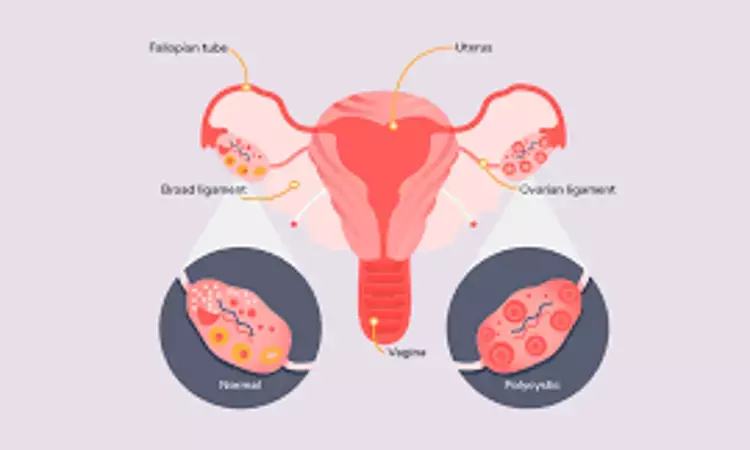- Home
- Medical news & Guidelines
- Anesthesiology
- Cardiology and CTVS
- Critical Care
- Dentistry
- Dermatology
- Diabetes and Endocrinology
- ENT
- Gastroenterology
- Medicine
- Nephrology
- Neurology
- Obstretics-Gynaecology
- Oncology
- Ophthalmology
- Orthopaedics
- Pediatrics-Neonatology
- Psychiatry
- Pulmonology
- Radiology
- Surgery
- Urology
- Laboratory Medicine
- Diet
- Nursing
- Paramedical
- Physiotherapy
- Health news
- Fact Check
- Bone Health Fact Check
- Brain Health Fact Check
- Cancer Related Fact Check
- Child Care Fact Check
- Dental and oral health fact check
- Diabetes and metabolic health fact check
- Diet and Nutrition Fact Check
- Eye and ENT Care Fact Check
- Fitness fact check
- Gut health fact check
- Heart health fact check
- Kidney health fact check
- Medical education fact check
- Men's health fact check
- Respiratory fact check
- Skin and hair care fact check
- Vaccine and Immunization fact check
- Women's health fact check
- AYUSH
- State News
- Andaman and Nicobar Islands
- Andhra Pradesh
- Arunachal Pradesh
- Assam
- Bihar
- Chandigarh
- Chattisgarh
- Dadra and Nagar Haveli
- Daman and Diu
- Delhi
- Goa
- Gujarat
- Haryana
- Himachal Pradesh
- Jammu & Kashmir
- Jharkhand
- Karnataka
- Kerala
- Ladakh
- Lakshadweep
- Madhya Pradesh
- Maharashtra
- Manipur
- Meghalaya
- Mizoram
- Nagaland
- Odisha
- Puducherry
- Punjab
- Rajasthan
- Sikkim
- Tamil Nadu
- Telangana
- Tripura
- Uttar Pradesh
- Uttrakhand
- West Bengal
- Medical Education
- Industry
Kisspeptin could be potential biomarker for diagnosis of PCOS

Kisspeptin could be a potential biomarker for diagnosing PCOS suggests a new study published in the Clinical Endocrinology.
Polycystic ovary syndrome (PCOS) is a pathophysiological disease affecting reproductive and metabolic indicators. Research has shown that kisspeptin might be involved in the regulation of pituitary hormone secretion and energy metabolism. The aim of this study was to investigate the relationship between serum kisspeptin levels and abnormal metabolism in PCOS.
Fifty patients with PCOS and 50 control patients were recruited for this study. Serum kisspeptin levels were measured via ELISA. High-performance liquid chromatography-tandem mass spectrometry metabolomics was used to study the changes in serum metabolism between the PCOS and control groups.
Results:
Serum kisspeptin levels were significantly elevated in individuals with PCOS compared with those in healthy controls (p = 0.011) and positively correlated with LH, T, FFA, BA, and LEP levels (p < 0.05). Significantly dysregulated expression of several metabolites was observed in the intergroup comparisons of the high-kisspeptin PCOS, low-kisspeptin PCOS, and healthy control groups. These primarily consisted of lipid, amino acid, and carbohydrate metabolites, among which palmitic acid and N-formylkynurenine levels were lower in the high-kisspeptin group than in controls. Metabolite set enrichment analysis was also performed based on metabolites in the KEGG database. The results showed that owing to the differences in kisspeptin concentrations in individuals with PCOS, there was a significant difference in amino acid and pyruvate metabolism.
Kisspeptin could be a potential biomarker for the diagnosis of PCOS and plays an important role in metabolic regulation in individuals with PCOS. In addition, metabolomics provides a promising method for the study of metabolic abnormalities in individuals with PCOS, which might contribute to our understanding of its mechanisms.
Reference:
Ting Zhao; Xiao Xiao; Lingchuan Li; Xinghua Tao; Wenli He; Qiong Zhang; Xiaomei Wu; Tao Yuan. Role of Kisspeptin in Polycystic Ovarian Syndrome: A Metabolomics Study. Clinical Endocrinology
Clin Endocrinol. 2023;99(3):315-325.
Keywords:
Kisspeptin, potential, biomarker, diagnosing, PCOS, Ting Zhao; Xiao Xiao; Lingchuan Li; Xinghua Tao; Wenli He, Clinical Endocrinology
Dr. Shravani Dali has completed her BDS from Pravara institute of medical sciences, loni. Following which she extensively worked in the healthcare sector for 2+ years. She has been actively involved in writing blogs in field of health and wellness. Currently she is pursuing her Masters of public health-health administration from Tata institute of social sciences. She can be contacted at editorial@medicaldialogues.in.
Dr Kamal Kant Kohli-MBBS, DTCD- a chest specialist with more than 30 years of practice and a flair for writing clinical articles, Dr Kamal Kant Kohli joined Medical Dialogues as a Chief Editor of Medical News. Besides writing articles, as an editor, he proofreads and verifies all the medical content published on Medical Dialogues including those coming from journals, studies,medical conferences,guidelines etc. Email: drkohli@medicaldialogues.in. Contact no. 011-43720751


